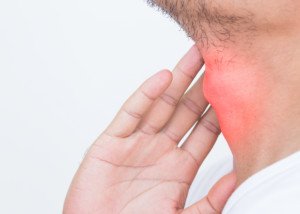If you’ve had your gallbladder removed and have since noticed a new-onset burning in your chest or throat, is it possible that the surgery is the cause?
Gallbladder removal (also called cholecystectomy) is common and is a frequent recommendation for painful gallstones.
One can lead a perfectly normal life without this pouch-like organ.
Makes you wonder how the human body came to evolve the presence of a gallbladder.
Perhaps in our more primitive ancestry, this organ carried out more functions.
But in modern humans, its function is to store bile — a liquid produced by the liver that breaks down fats found in foods.
The liver continues to produce bile even in the absence of a gallbladder. The substance continuously flows into the intestinal tract.
It’s often recommended to eat smaller, more frequent meals and limit high-fat foods to avoid digestive discomfort for patients without a gallbladder.
Overall, living without a gallbladder doesn’t significantly impact long-term health or quality of life for most people.
Heartburn from gallbladder removal?
But can a gallbladder removal lead to heartburn or worsen pre-existing acid reflux issues?
“Yes, it can in some people,” says Nadeem Baig, MD, a board certified gastroenterologist and hepatologist at Monmouth Gastroenterology, a division of Allied Digestive Health.
“Gallbladder removal can lead to more bile entering the intestinal tract than needed.
“Excess bile can flow back into the stomach, where people can reflux it into their esophagus (food pipe).
“The bile can be equally as noxious as acid in the esophagus, thus triggering heartburn and making acid reflux worse.”
What makes the bile reflux back into the stomach?
A common reason for acid reflux is a weak or too-relaxed esophageal sphincter.
This vital muscle is responsible for preventing stomach acid from flowing back into the esophagus.
When the sphincter is compromised, acid can escape and irritate the esophagus, leading to discomfort and symptoms of gastroesophageal reflux disease (aka GERD).
Similarly, a strong, properly functioning sphincter helps prevent bile from refluxing into the stomach, maintaining the proper digestive balance.
If a burning sensation also occurs in the throat, this would be because acid and/or bile has refluxed high enough to make it into the throat.
You may have symptoms of acid reflux only in the throat — often in the form of a burning sensation. There may also be some coughing, including overnight while the patient is asleep.
There are several ways to treat bile reflux, including avoiding any triggers such as lying horizontally overnight. Elevating your bed can help reduce overnight reflux.
You should speak to your surgeon about treatment options.
 Dr. Baig’s specialties include gastrointestinal cancers and liver disease, plus gallbladder, biliary tract and pancreatic disorders. He is an assistant clinical professor of medicine at the University of Medicine and Dentistry of NJ/Robert Wood Johnson Medical School.
Dr. Baig’s specialties include gastrointestinal cancers and liver disease, plus gallbladder, biliary tract and pancreatic disorders. He is an assistant clinical professor of medicine at the University of Medicine and Dentistry of NJ/Robert Wood Johnson Medical School.
 Lorra Garrick has been covering medical, fitness and cybersecurity topics for many years, having written thousands of articles for print magazines and websites, including as a ghostwriter. She is also a former ACE-certified personal trainer.
Lorra Garrick has been covering medical, fitness and cybersecurity topics for many years, having written thousands of articles for print magazines and websites, including as a ghostwriter. She is also a former ACE-certified personal trainer.



























